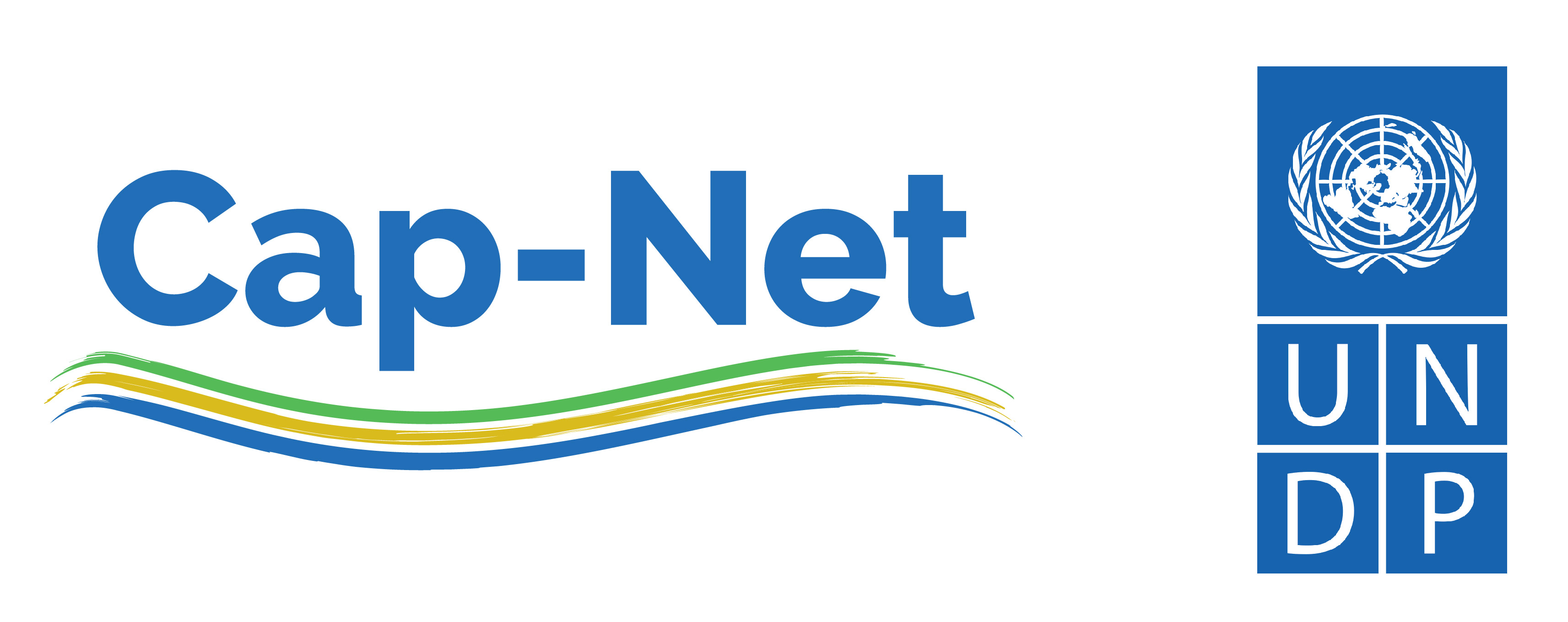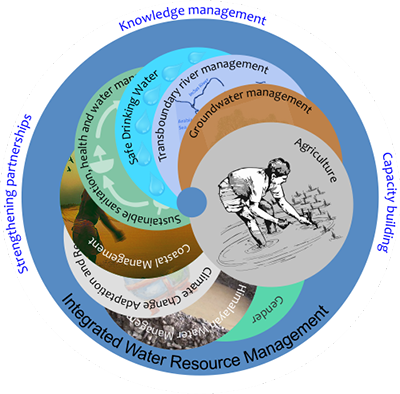About
Introduction
In 2002 Cap-Net was initiated by UNDP as an associated programme of Global Water Partnership for capacity building in Integrated Water Resources Management (IWRM) through an international network. The goal was to achieve sustainable management and development of water resources and improved access to basic water supply and sanitation services which would benefit the poor and contribute towards improvement of livelihoods, environmental sustainability and reduction in climate change vulnerability. To address the huge capacity gaps Cap-Net overtime evolved as a global network for capacity development across four-focus area of UNDP (poverty reduction, democratic governance, crisis preventions and recovery, and environment and sustainable development) through the lens of water resource management. It is made up of a partnership of autonomous regional, national, and international, institutions and networks committed to capacity development in the water sector.
In South Asia, the rapid population growth, water demand for industrial use, agriculture pressure and domestic usage has created challenges for sustainability, accessibility and equitable sharing of water resources. The increasing impacts of changing environment have further aggravated water – availability, quality, and equity, bringing newer threats and risk in peace and security amongst the neighboring States. This has created perpetual shortage and unequal water distribution.
Water serving as the fundamental link between the climate system, human society and the environment is evolving and demand multi-disciplinary engagement, collaborative capacity building training, strong leadership to shape new and effective paradigms and approaches to water management. SaciWATERs with its vision to produce new knowledge to address the pressing problems in the water sector through education, research and advocacy joined the global efforts to scale-up the huge capacity gap in South Asia. In 2009, SaciWATERs in association with Cap-Net host the network regional secretariat as SaciWATERs Cap-Net Network (SCaN) for South Asian partners to promote capacity building activities in IWRM.
About SCaN
SCaN comprises of autonomous regional and national institutions and individuals committed to building capacity of water professionals across South Asia. Established in 2009, SCaN has successfully initiated activities in collaboration with various national, regional and international organizations. Through its capacity building activities it has been able to reach a diverse group of stakeholders such as academics, researchers, policymakers, donors and implementers. Realizing the enormous demand for capacity building in the water sector across the region, SCaN plans to expand its activities manifold to further reach many more institutions and individuals.
Vision
To strengthen the human and institutional capacity by adopting an integrated approach within water sector in South Asia region through education & training; research; knowledge development; advocacy; and networking.
Objectives
- Facilitate network members to conduct capacity building programs in IWRM through partnerships;
- Provide network members a platform for sharing skills, expertise and resources to strengthen and enhance their efforts and impacts in IWRM;
- Expand multidisciplinary knowledge base in IWRM and its reach in the water sector.



